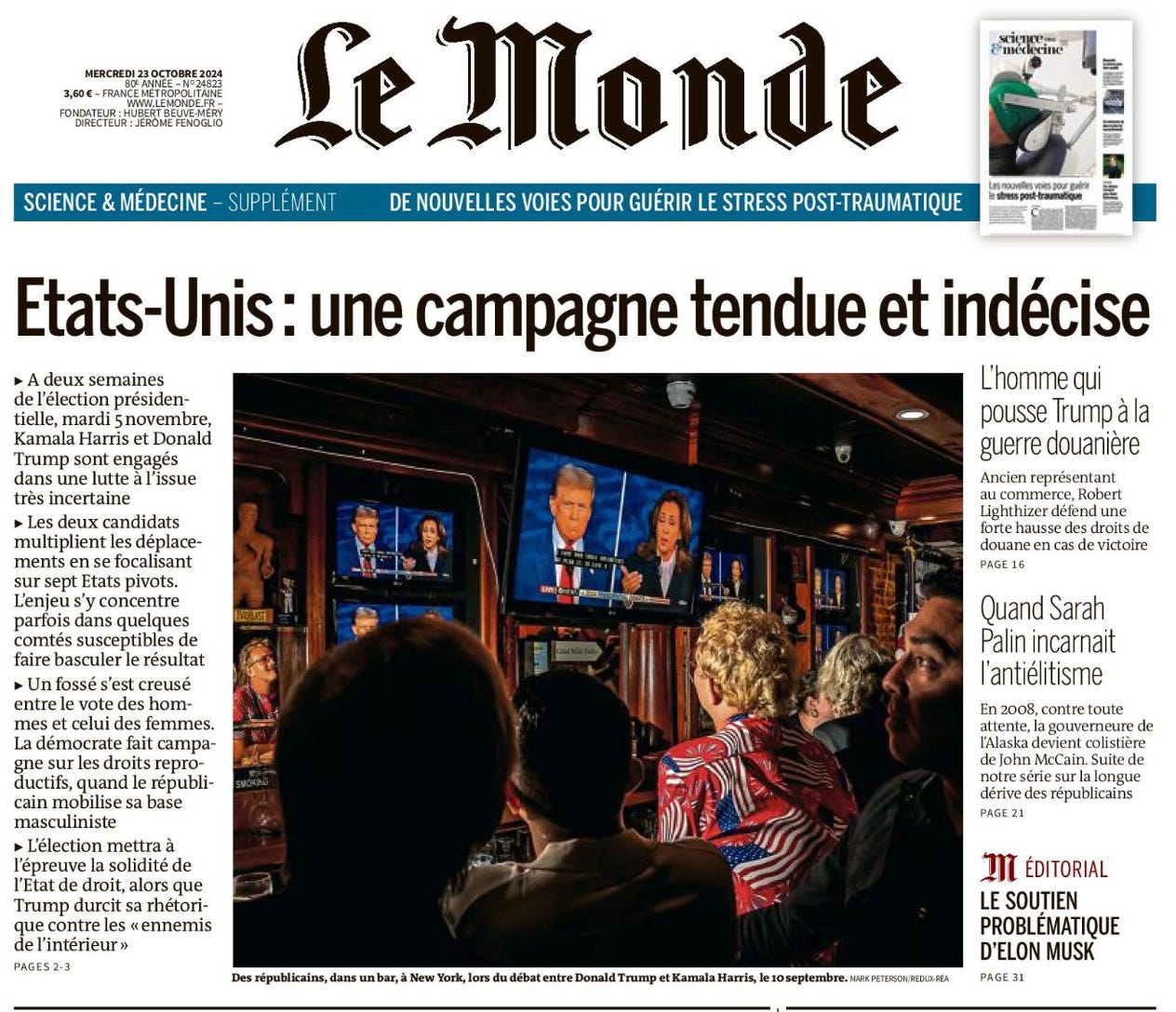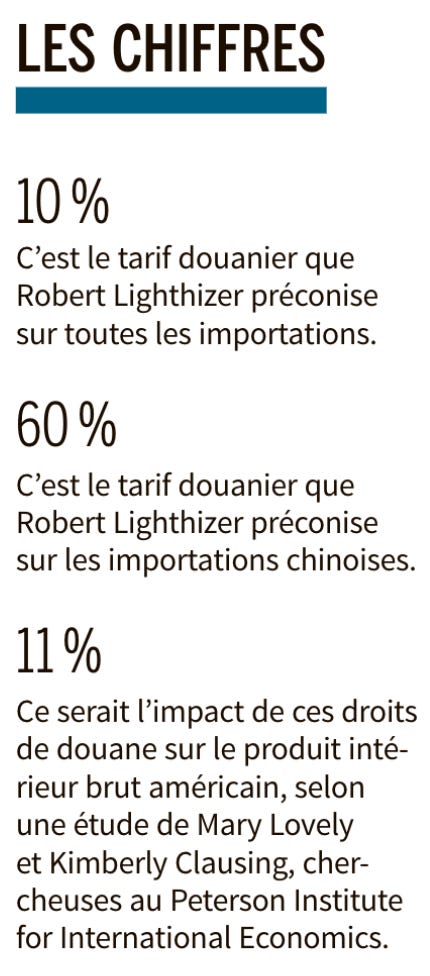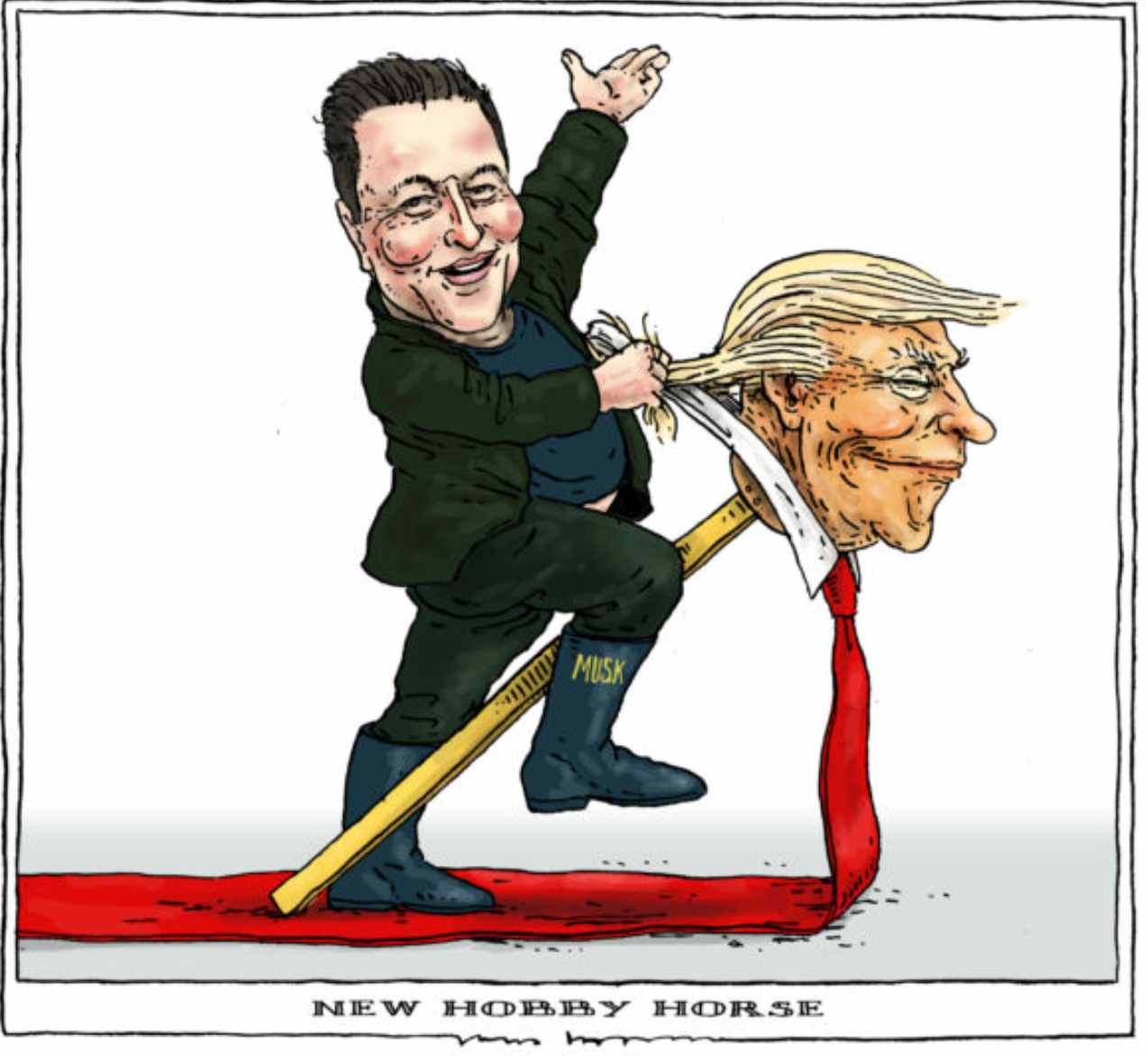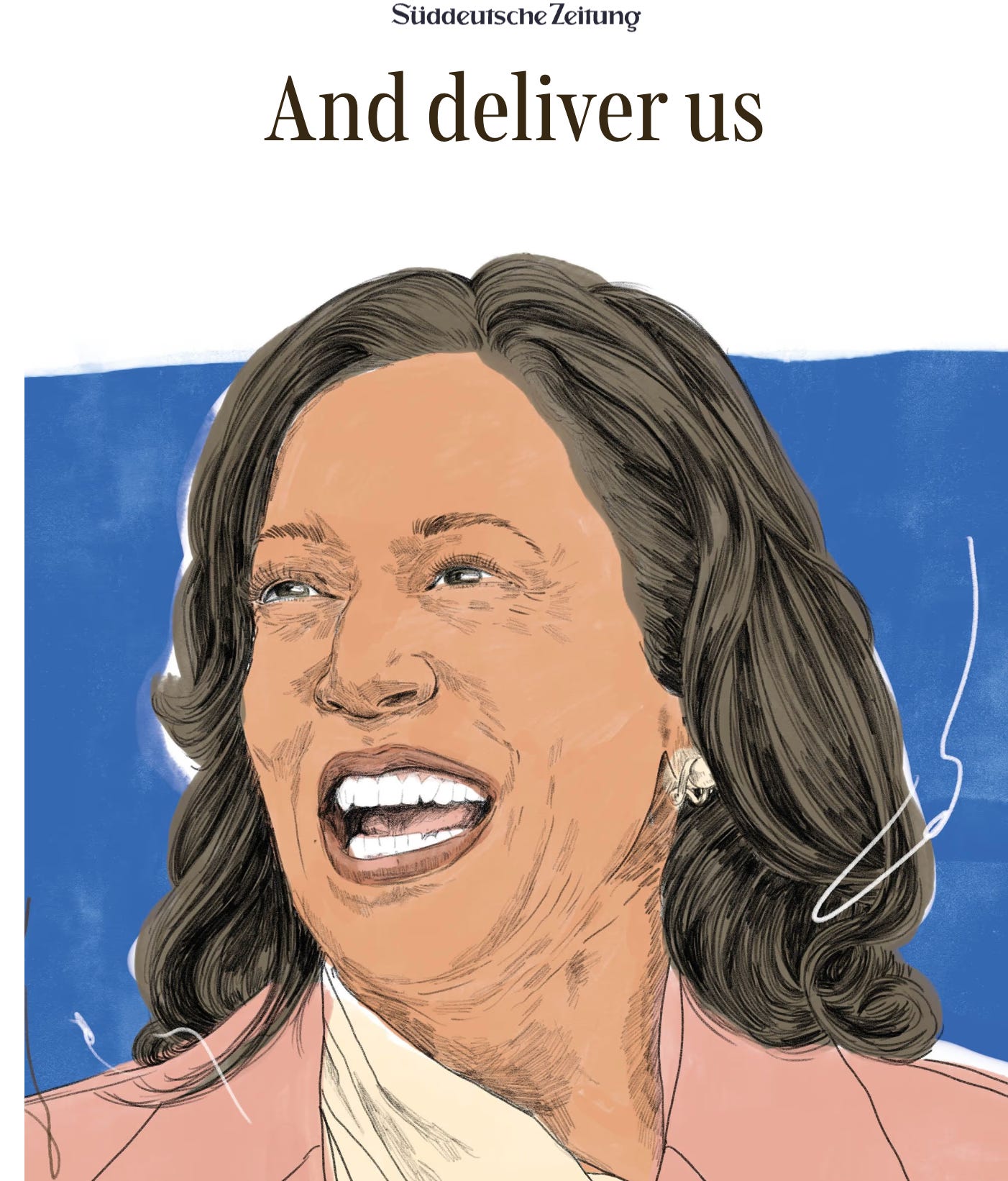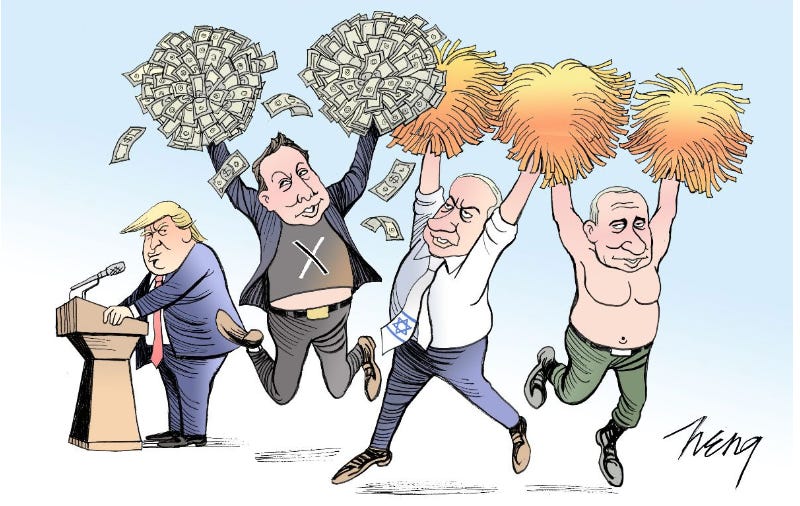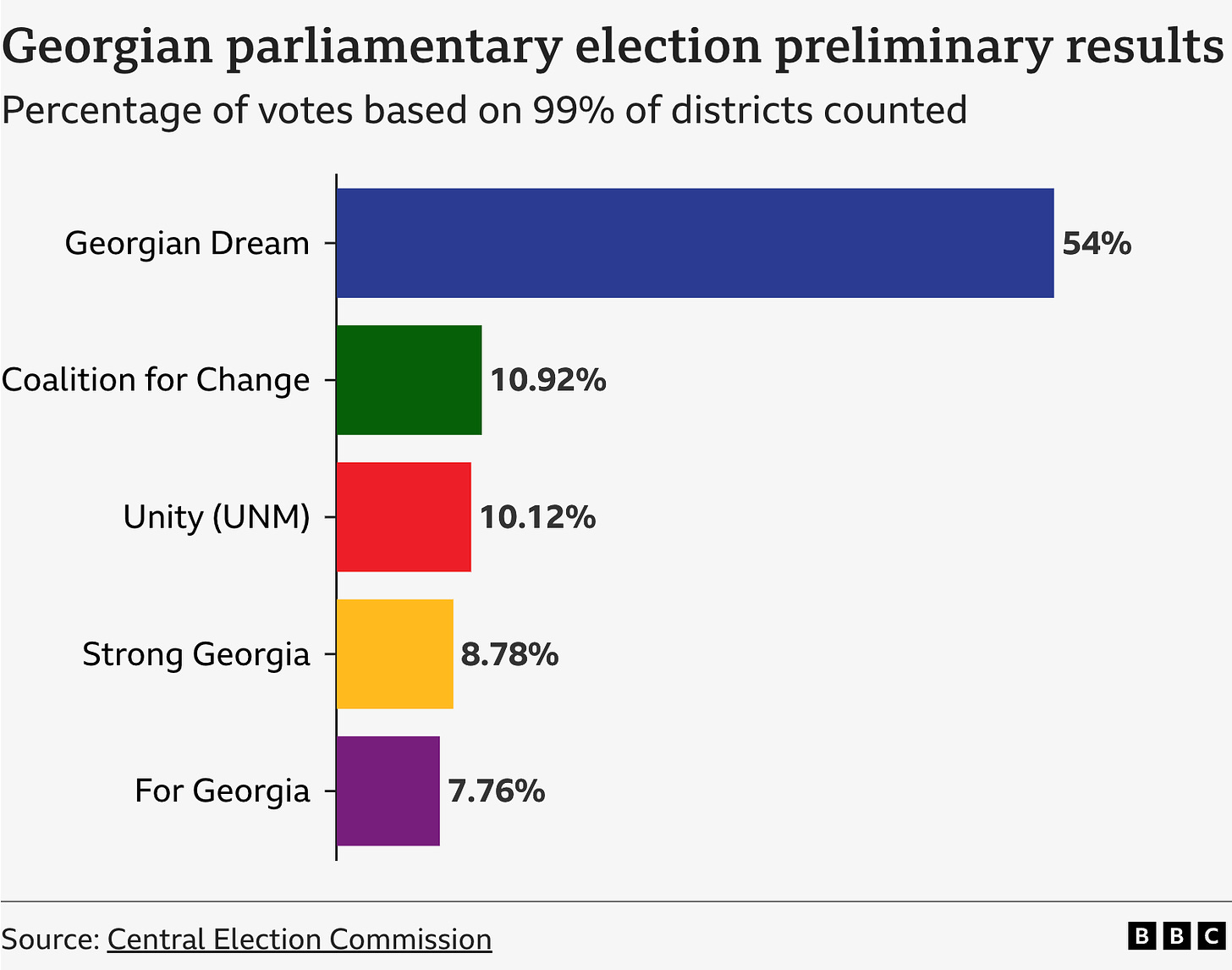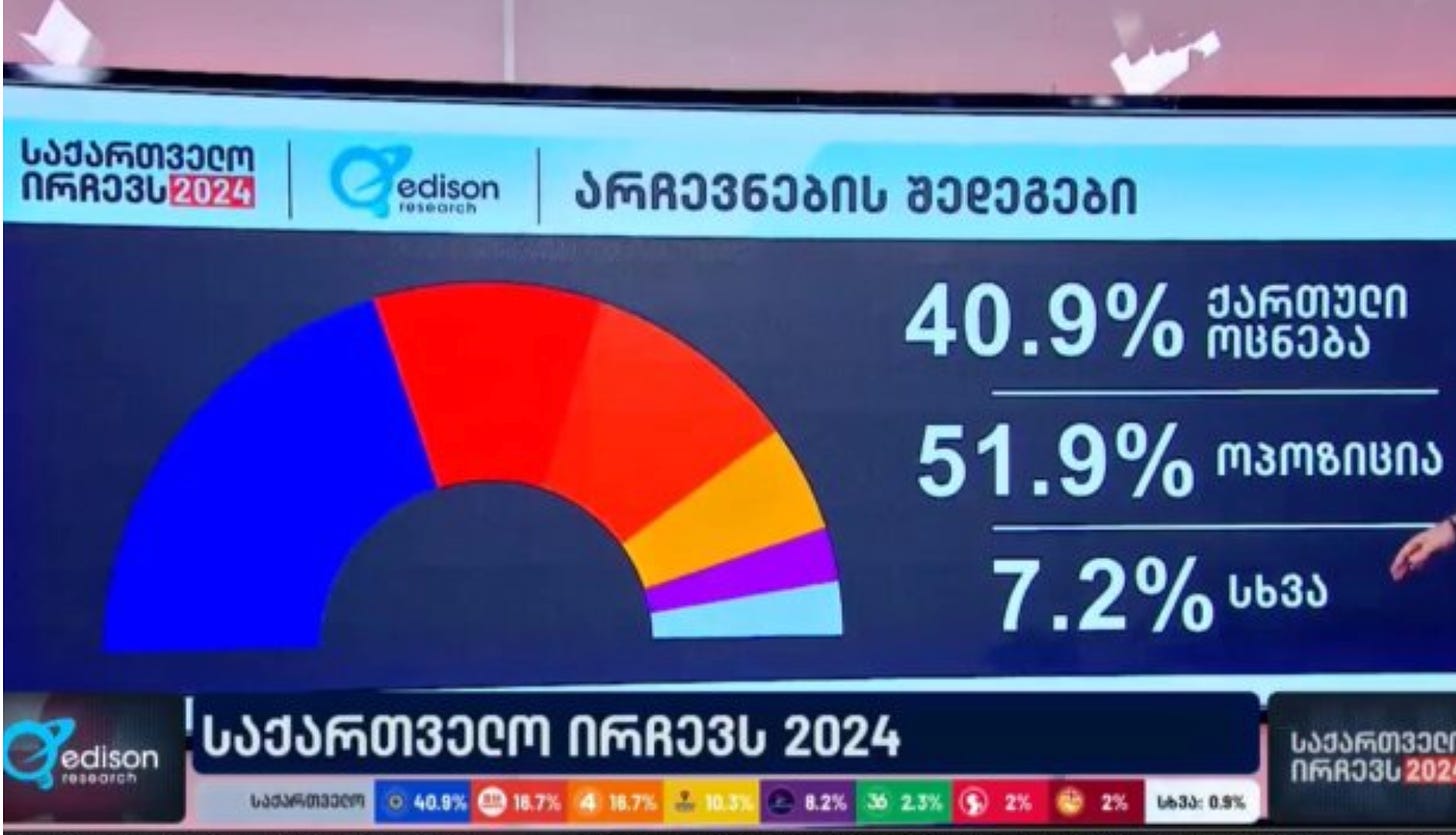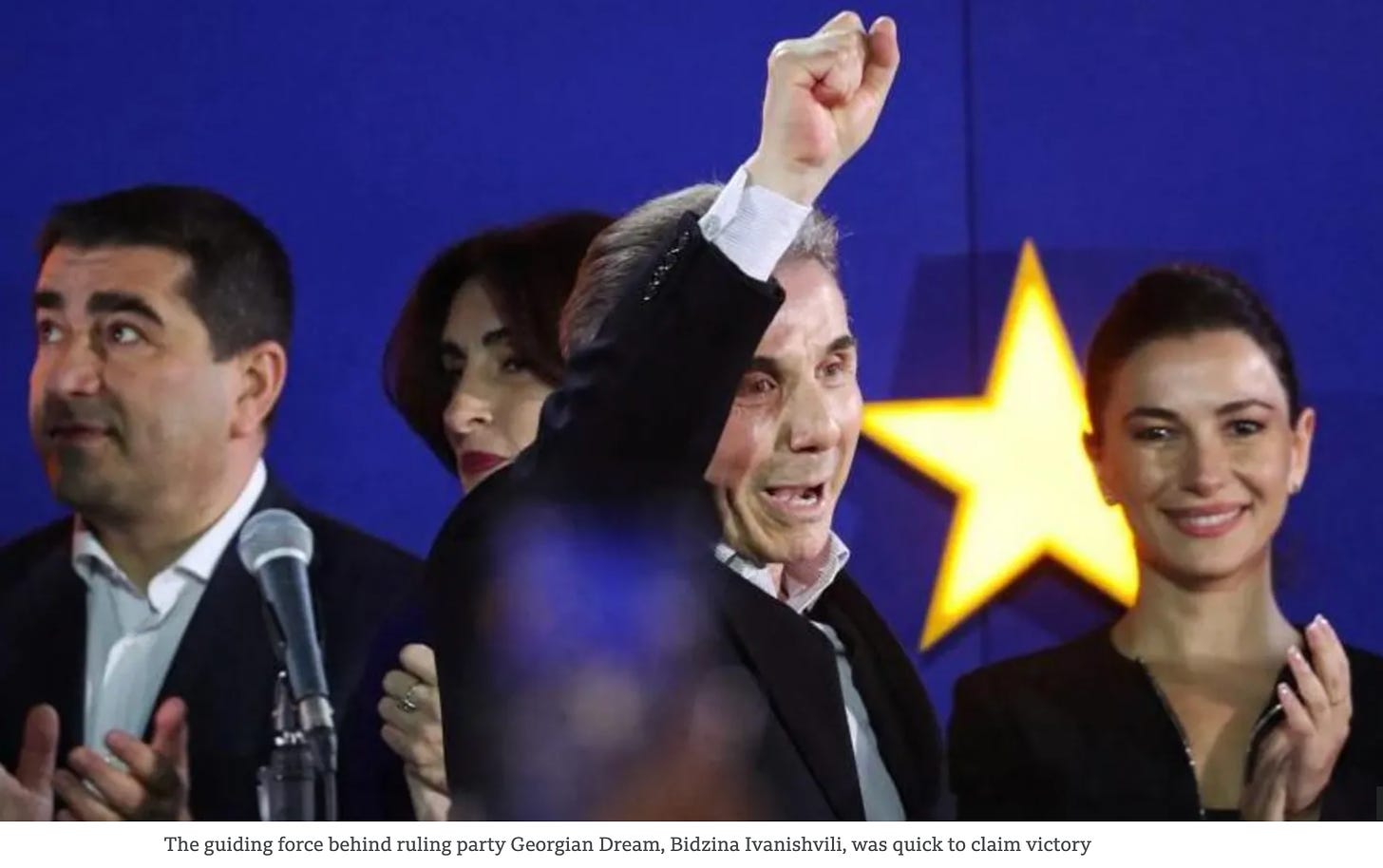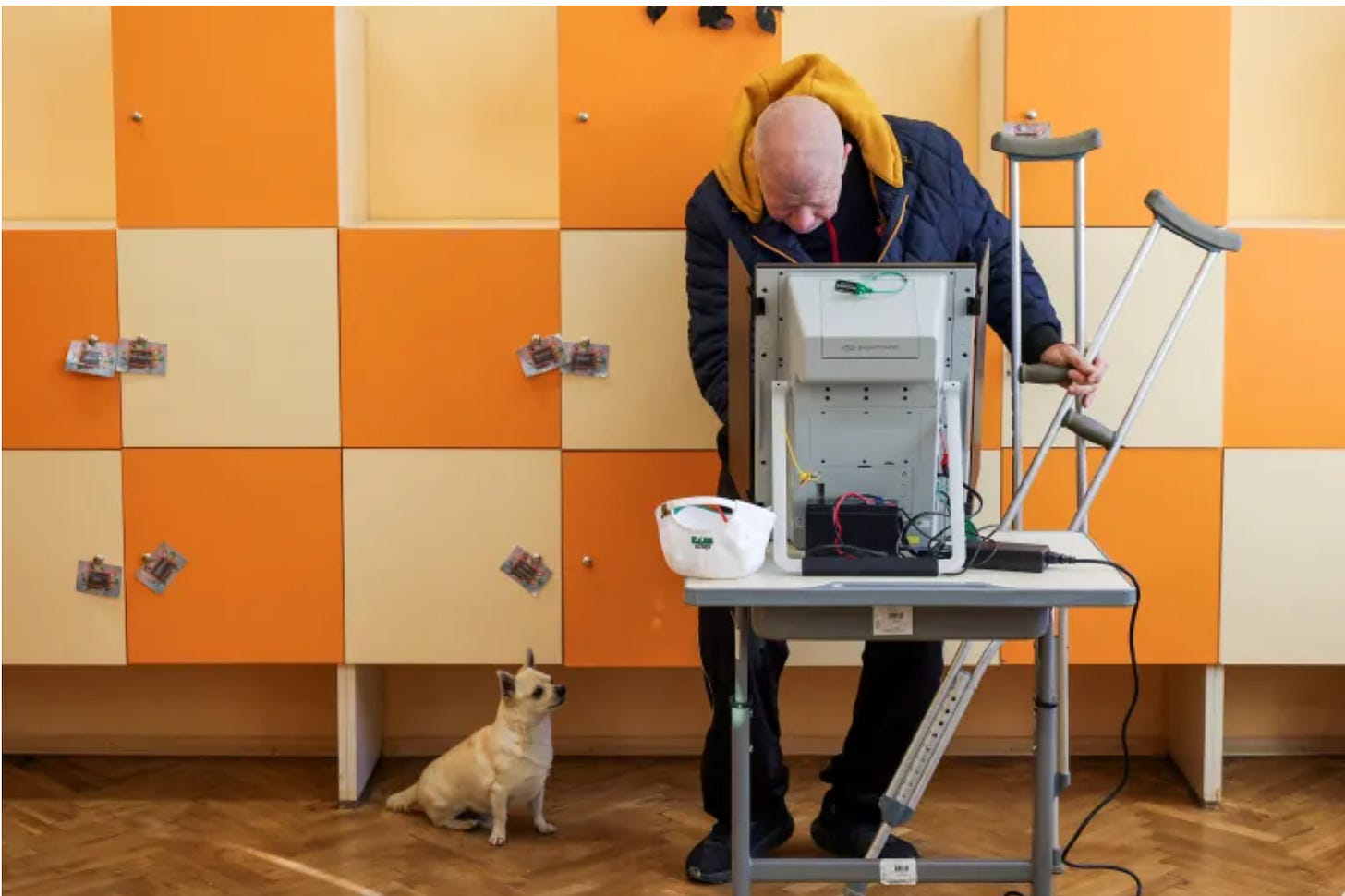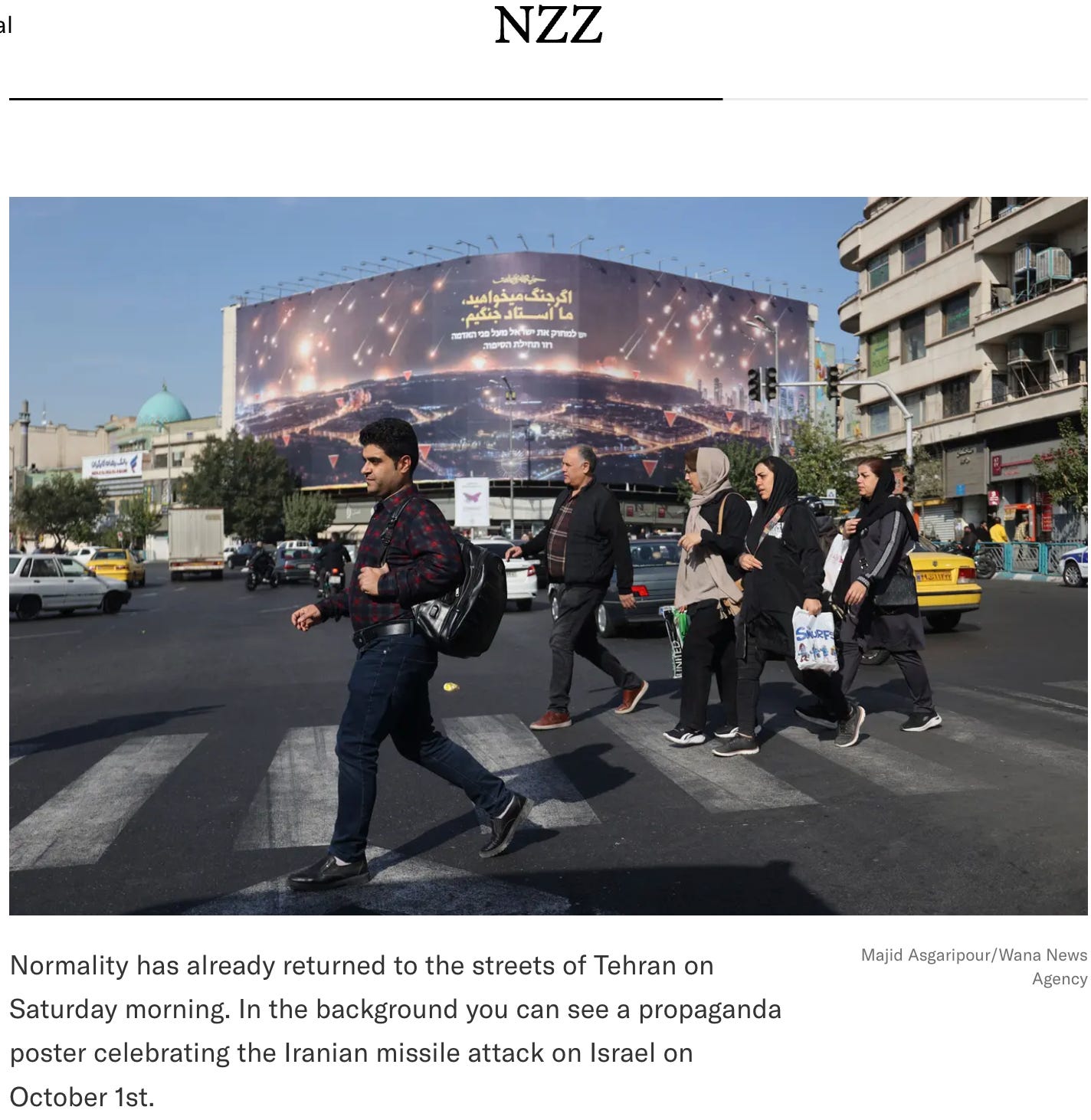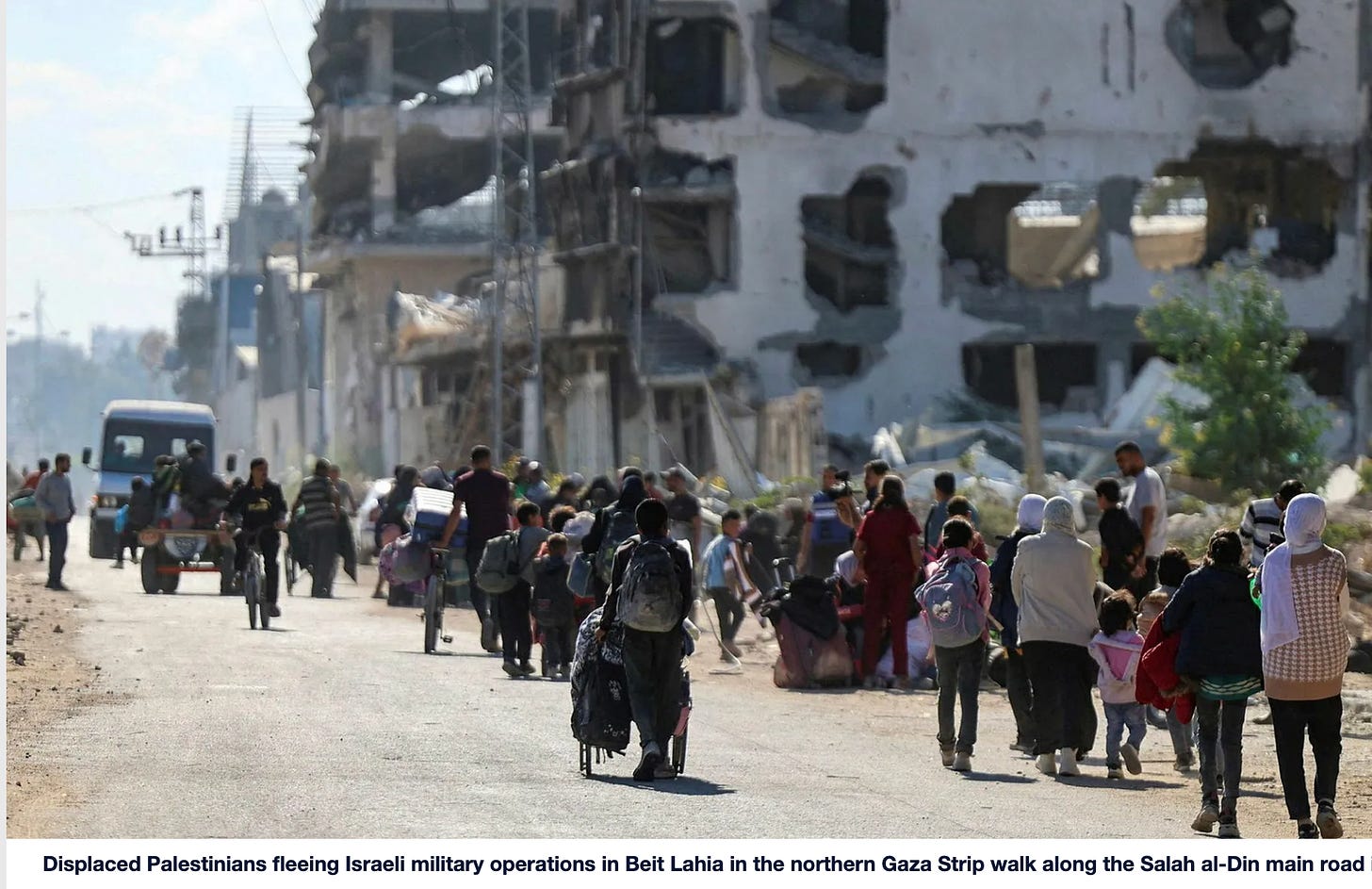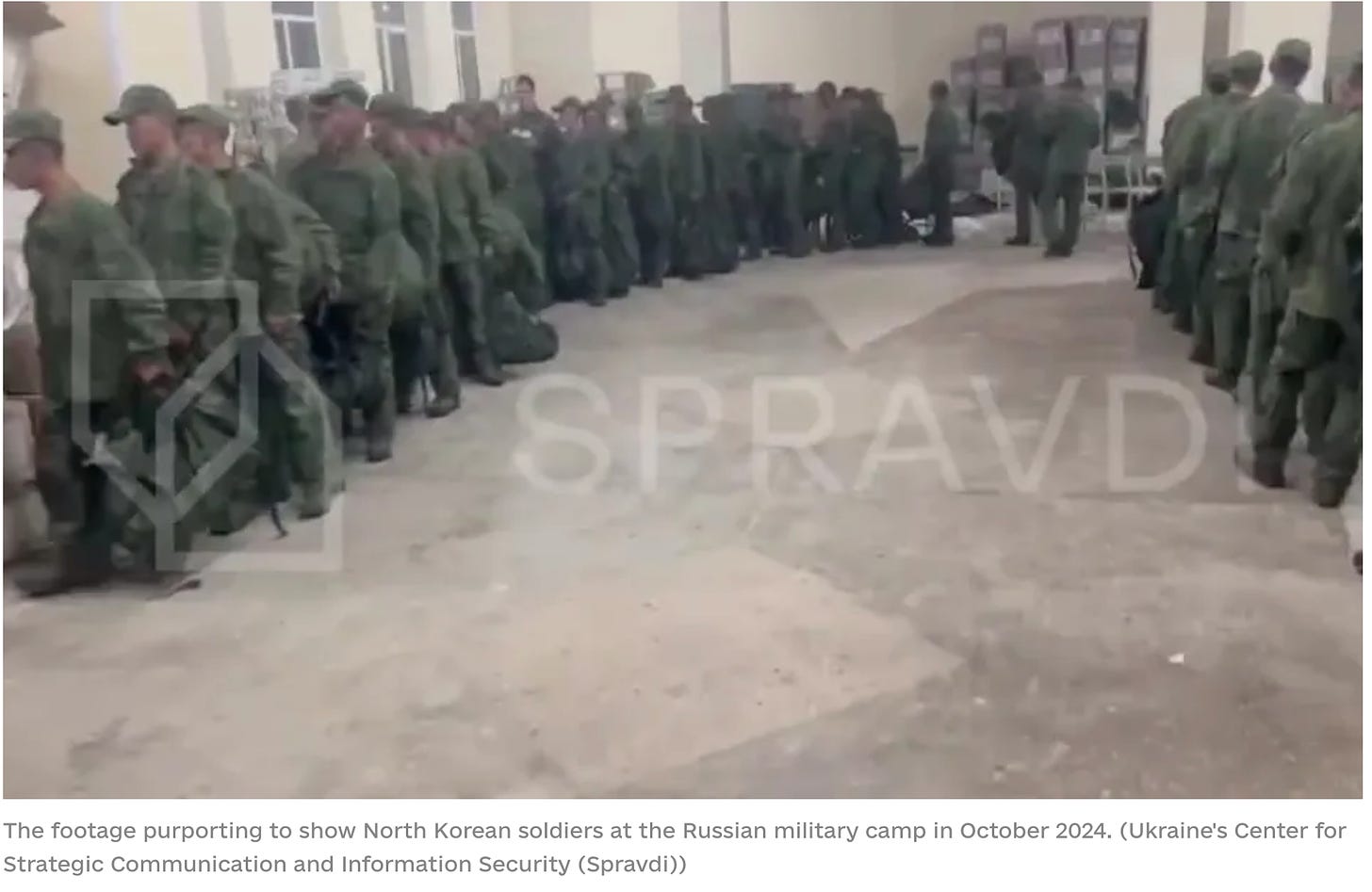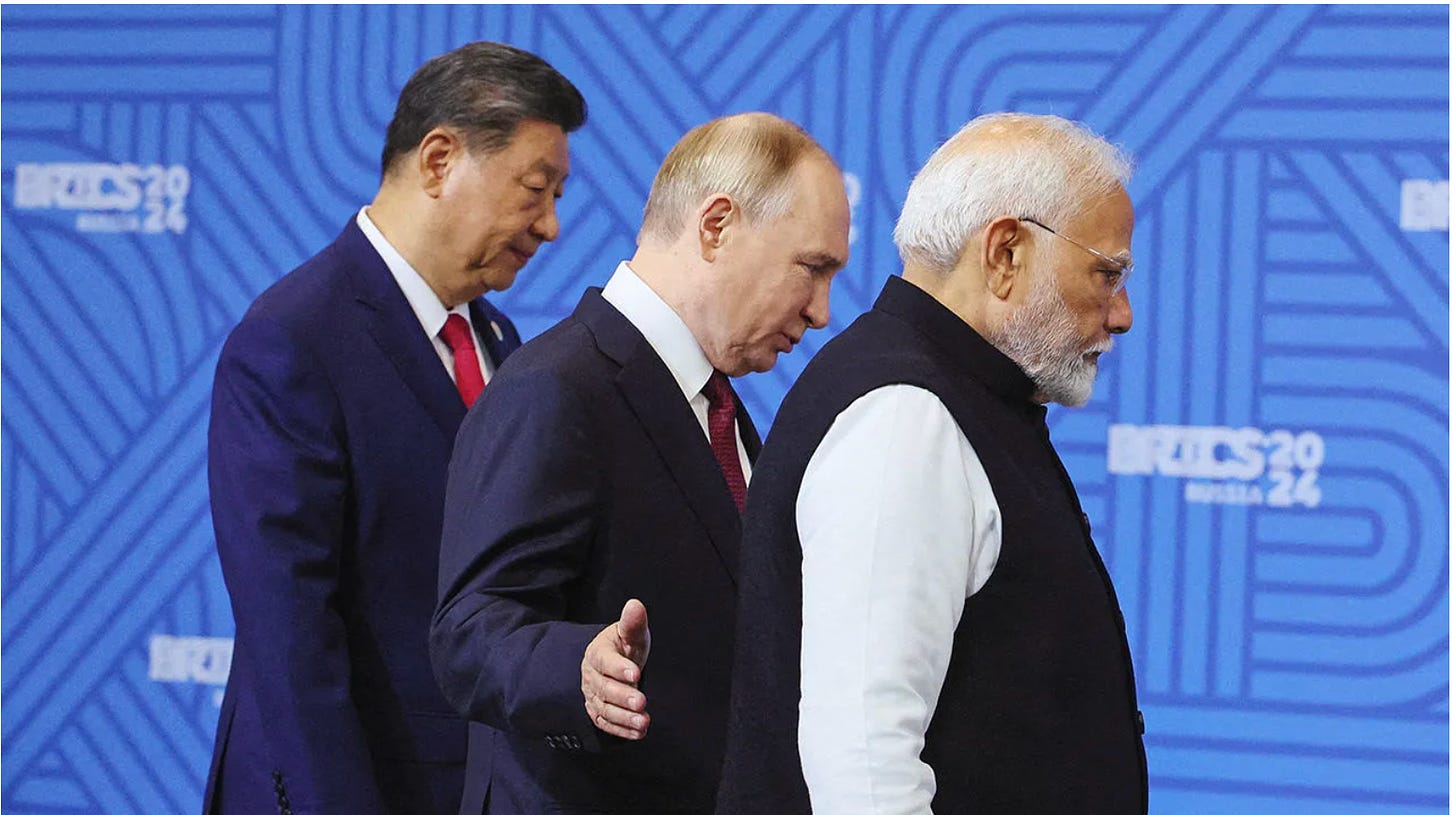TWTW: The World This Week #114 + Elections 2024
Elections: USA apocalypse approaches…in Georgia it’s arrived…Bulgaria, Uruguay, Moldova …Israel plays nice? … Sprechen zie North Korean? … and paid: Apple agonistes … a portfolio of cartoons worldwide
In this weekly feature for Andelman Unleashed, we continue to explore how the media of other nations are reporting and commenting on the United States, and how they are viewing the rest of the world.
This week, again in Paris…but monitoring the world, and apologies, but we’re a bit front-loaded with ….
Elections 2024: America, Georgia (Caucasus), Bulgaria, Uruguay, Moldova
Paralyzed in America
Barely a week to go before what is shaping up as an epiphanal week for America. But perhaps the stakes are even higher—if such is even possible—for the rest of the world which seems unable to get enough of this existential contest between good and evil, democracy and autocracy, beyond the seas.
To have a sense of just how hard the world is taking the chances of a Trump presidency, we have only to monitor the front pages and especially the cartoonists. For example, here’s Le Monde’s front page banner headline:
United States: A campaign tense and indecisive
The paper is especially concerned, as is much of the world, by Trump’s pledge to embark on a tariff war (“guerre douanière”), so Le Monde’s New York correspondent, Arnaud Leparmentier profiled Robert Lighthizer “the man who’s pushing Trump toward a commercial war.” And the impact?
10% The customs duty Robert Lighthizer recommends for all imports.
60% The customs duty Robert Lighthizer recommends for all Chinese imports.
11% The impact of these customs duties on America’s GDP, according to a study by Mary Lovely and Kimberly Clausing, researchers of the Peterson Institute for International Economics.
Putting it all even more sharply, Le Monde ’s ace Washington correspondent Piotr Smolar:
The November 5 presidential election is also a referendum on the United States' role in the world. It is a vote on American values and interests, a choice between traditional multilateralism and a vision of a chaotic world, a jungle where Washington should favor relations of force over cooperation.
But it’s the paper’s lead editorial that’s especially compelling:
Elon Musk's problematic support for Donald Trump
The richest man in the world, owner of the X network, is not content with financing the Republican candidate for the American presidential election, he has become a cog in the campaign with questionable methods and an unrivaled capacity for influence….
Joop Bertrams in The Netherlands
Under the pretext of defending freedom of expression, his platform spreads lies and slander to harm Democrats, while multiplying explicit positions in favor of Trump…pour[ing] out a torrent of disinformation…. Little by little, the social network has transformed into an informal organ at the service of the Republican candidate. Musk's influence is all the more decisive on the political level because he reinforces the Trumpist electorate in its obsessions, starting with the anti-migrant discourse that he helps to peddle….
Musk is positioning himself to turn his vast wealth into an unprecedented source of unaccountable political power. The role that Elon Musk could be called upon to play is not the least of the risks posed by a second Donald Trump term.
The German daily Südeutsche Zeitung was even more direct in discussing Kamala Harris:
Because she is running against Donald Trump, not only the hopes of her party, the American Democrats, are resting on her. The hopes of large parts of the Western world are resting on her. Trump's critics are predicting a horror scenario if he is elected: domestically, he could plunge the USA into chaos. Among other things, he has threatened to prosecute his opponents, critical journalists, and also the current President Joe Biden. Internationally, the country could turn away from allies, from Ukraine, from NATO, and instead curry favor with authoritarian rulers such as Russian President Vladimir Putin.
In this scenario, the only one who can still save the world from Donald Trump is Kamala Harris….But who is this woman who was so pale as vice president that she had almost been forgotten before she suddenly stepped in for US President Joe Biden at the end of July?
The fact that she could still lose this election, and to Trump at that, leaves many people stunned.
Not the least of these people, a host of the world’s most extraordinary cartoonists who’ve embraced this campaign, even far from their homes and their readers, as never before. Like Singapore’s Heng Kim Song, who draws for the island nation’s largest daily, Chinese-language Lianhe Zaobao, and sees Musk, Israel’s Netanyahu, and Putin each celebrating a Trump victory….
We’ve reserved at the end, below, for our (lightly) paying subscribers, an extraordinary portfolio of cartoonists from across the world dealing with America’s agony and ecstasy with our thanks to the Paris-based collective, Cartooning for Peace.
Georgia’s own agony…a dream snuffed
Barely a week after another former Soviet state—Moldova—chose with a wafer-thin margin a move toward Europe and away from Russia, now on the other side of the Black Sea, it was Georgia’s turn. Here, voters chose in what independent observers called a deeply flawed election, to return to power the party that has set its sights on a pivot toward Russia and away from the EU.
As the BBC ‘s Paul Kirby and Steve Rosenberg described the lay of the land the day after:
Pro-Western opposition groups in Georgia have refused to accept results that hand victory to the increasingly authoritarian ruling party, after a pivotal election focused on the country's future path in Europe.
The Georgian Dream party of billionaire businessman Bidzina Ivanishvili claimed outright victory and the central election commission said it had won 54% of the vote based on more than 99% of districts counted.
The initial results were dramatically different from exit polls conducted by Western pollsters.
Tina Bokuchava of the opposition United National Movement said the elections had been falsified and the vote "stolen from the Georgian people".
Another opposition leader, Nika Gvaramia, said Georgian Dream had mounted a "constitutional coup", while analysts said its increased vote share from four years ago was scarcely credible.
Both Georgian Dream and the four pro-EU opposition groups trying to end its 12 years in power had earlier claimed victory based on competing exit polls…Edison Research giving the victory to the combined opposition 51.9% to 40.9%.
A coalition of 2,000 election observers called My Vote said given the scale of vote-fraud and violence it did not believe the preliminary results "reflect the will of Georgian citizens".
The opposition has described this high-stakes vote as a choice between Europe or Russia. Many saw the vote as the most crucial since Georgians backed independence from the Soviet Union in 1991.
As Euronews’s David O’Sullivan reported on the stakes:
Bidzina Ivanishvili—a shadowy billionaire who set up Georgian Dream and made his fortune in Russia—vowed again to ban opposition parties should his party win. Georgian Dream will hold opposition parties “fully accountable under the full force of the law” for “war crimes” committed against the people of Georgia, Ivanishvili said at a pro-government rally in the capital Tbilisi. He did not explain what crimes he believes the opposition has committed….
Georgia's pro-EU movement has been strong for decades, with a survey in March 2023 finding 85% of Georgians to be in favour of joining the bloc. Despite the depth of approval, [pro-Russian] Georgian Dream secured a third term in power in 2020. Yet some experts suggest that the introduction of the foreign agents bill and the stalling of EU accession have permanently damaged Georgian Dream's popularity.
"This isn't a regular election," Dr Shalva Dzebisashvili, head of Politics and International Relations at the University of Georgia, told Euronews. "People know if we choose Georgian Dream it means the status quo, and the refusal of the European future."
Either way, Georgia Dream will have a majority of 91 seats in the 150-member x—enough to form a government but not enough to change the nation’s constitution banning all opposition parties as it had hoped.
If this all sounds to you like a foretaste of November 5 in America, you are not alone.
Bulgaria redux again and again…
For the seventh (that’s right!) time in barely four years, Bulgarian voters (at least all those who could possibly care anymore) trudged to the polls Sunday in a vain effort to elect a parliament able to lead their nation. As Poland’s TVP World reported:
Public trust in the Bulgarian parliament is now just 6%....The poll, conducted by bTV, a Bulgarian media group, and Market Links, a market and social research company, also found only 17% have trust in the current caretaker government.
The 6%, according to Dobromir Zhivkov, a sociologist cited by the Novinite news agency, is a record low.
Voting in Bulgaria…again
A Gallup poll found that Bulgarians’ confidence in the honesty of their elections had fallen to 10%—from a high of 36% in 2006—well below the EU median of 62%.
The dismal percentages appear to reflect growing dissatisfaction among the Bulgarian population with a political system that has failed to provide the country with a prolonged period of stability and seen governments come and go with alarming rapidity.
The instability could also further enhance the popularity of Revival, a pro-Russian far-right party that placed third in the bTV poll at 13.1%. In other polls it has come second.
Uruguay: reforms & reformers
It’s presidential election time in Uruguay, one of Latin America’s economic success stories that may be perched on the brink of disaster by referenda on the ballot, as Harriet Barber reports in London’s Guardian:
The election is set to be eclipsed by a pension plebiscite that analysts have warned could cripple the nation’s finances.
Along with choosing a new president, 30 senators and 99 deputies, the electorate will also vote on two referendums. The first—which comes in response to rising fears over organised crime and public safety—would allow nighttime police raids on homes. But it is the second that is dominating headlines: a pension referendum that would overturn recent reforms, lower the retirement age by five years, tie pensions to the minimum wage and scrap private pension fund managers.
Supporters say it would redistribute wealth and make pensions more generous, but analysts fear the move could cripple the nation’s finances, and have dubbed it the country’s “Brexit moment”.
“This is a presidential election with an unnamed candidate and the plebiscite on pension reform,” said Nicolás Saldías, a senior analyst at the Economist Intelligence Unit. “It’s high stakes.”
Uruguay is known among its neighbours for its relative affluence, high per capita income and large middle class. Its commitment to free markets and private enterprise has attracted finance and tech firms alike: Google recently started building a datacentre in the south.
Moldova revisited
We are halfway to the landmark second round of the presidential election in Moldova, whose citizens approved last week by a razor-thin margin, a constitutional amendment enshrining the possibility of European Union membership in their nation’s constitution. Now, these voters go back to the polls to determine whether incumbent and determinedly pro-EU president Maia Sandu will win a second term or pro-Russian Socialist Party leader Alexandr Stoianoglo will come out on top.
And there’ll even be a debate, as EDMO (European Digital Media Observatory) put it:
The candidates have agreed to a debate on Sunday, October 27, at the Palace of the Republic. However, press associations are opposing the choice of the controversial journalist Gheorghe Gonța as the moderator, a proposal from Stoianoglo’s team, due to his lack of integrity and past acceptance of bribes. The Press Council of Moldova has urged the candidates to choose a neutral platform and a credible moderator. Stoianoglo responded by suggesting Sandu choose a journalist she finds acceptable, but Sandu insists on a direct debate between the candidates to focus on their plans for Moldova’s future. The debate is said to take place on Sunday at the Palace of the Republic, where each candidate will ask the other ten questions directly.
Analysts believe that the second round of the presidential elections will be highly competitive, with both Maia Sandu and Alexandr Stoianoglo having nearly equal chances of winning. A poll conducted before the first round of the presidential elections suggests that Maia Sandu would win the second round against Alexandr Stoianoglo: 40.6% of respondents said they would vote for Maia Sandu, while 36.4% would choose Alexandr Stoianoglo; 8.6% would not participate, 11.8% were undecided, and 2.6% refused to answer.
The outcome could prove critical for the future direction of EU expansion and especially the path neighboring Ukraine might take toward membership in the EU.
How others see the World
Israel plays nice….or was forced to?
Again, the world has been waiting for the next shoe, or missile, to drop in the Middle East. Now it has…but what next? The leading Swiss daily, Neue Zürcher Zeitung leads with this appraisal:
Israel's air force flew several waves of attacks against Iran. At least at first glance, the long-announced response to Tehran's rocket salvo in early October does not seem like an escalation.
Perhaps the Biden administration may have had a little hand in this? As the BBC reported:
The IDF said it hit around 20 targets, including missile manufacturing facilities, surface-to-air-missiles, and other military sites.
The Iranian military confirmed that four soldiers had died, two “while battling projectiles”.
Iranian authorities said sites in Tehran, Khuzestan and Ilam provinces were targeted. The country’s air defence said it had “successfully intercepted” the attacks, but that “some areas sustained limited damage”.
BBC Verify has identified damage at a defence ministry base to the east of Tehran, and at an air defence base to the south.
A senior US administration official said the attacks did not damage Iranian oil infrastructure or nuclear facilities, targets President Joe Biden had urged Israel not to hit.
Iran’s foreign ministry said it was "entitled and obligated to defend itself" and described the attack as a violation of international law.
But it also said that Tehran recognises its "responsibilities towards regional peace and security".
US National Security Council spokesman Sean Savett said Israel’s response “avoided populated areas and focused solely on military targets, contrary to Iran's attack against Israel that targeted Israel's most populous city".
But Washington’s aim, he added, is “to accelerate diplomacy and de-escalate tensions in the Middle East region".
And then, there’s the day after, as Noa Landau observe in the Israeli daily Haaretz:
While Netanyahu's opponents are criticizing him for his lack of any organized plan for Gaza on the day after the war, in practice, such a plan is being advanced through deeds. First, this is being done by occupying large swaths of Gaza, expelling the residents, destroying their homes, paving new roads, and building army outposts and other infrastructure for the long term. And right now, it is also being done by pushing a plan to transfer civilian control of Gaza to private companies, which will be paid for it.
The company that has recently been mentioned as a candidate, GDC [Global Delivery Company], is a military contractor of the kind that flooded Iraq and Afghanistan during America's occupation of those countries….These are mercenary corporations, and there are major questions about their compliance with international law and international standards.
Essentially, this would privatize military rule over Gaza by handing it over to private companies with private financial interests and nothing beyond that. The goal is to transfer moral and legal responsibility from Israel to these armed militias. And indeed, in a very troubling interview in Yedioth Ahronoth, the company's founder and CEO, Moti Kahana, said that "if something happens, we'll send a message to Gaza's residents—you don't want to mess with us." That's a genuine mafia-style line.
Sprechen zie Russky?
North Korean soldiers have begun arriving in droves in Russia, either en route to Ukraine or freeing up Russian units in the rear to move into frontline action. Either way, it seems, there’s this little problem of, hunh? As the Kyiv Independent reported:
Russia plans to assign one interpreter to every 30 North Korean soldiers for better coordination with Russian troops on the battlefield, Ukraine's military intelligence agency reported on Oct. 25, citing an intercepted conversation between service members of a Russian brigade in Kursk Oblast.
North Korea has sent nearly 12,000 troops to Russia, including 500 officers and three generals, to participate in the war against Ukraine, according to military intelligence. The first sightings of North Korean soldiers on a base in Russia were recorded on Oct. 23. Moscow is planning to send the first North Korean soldiers to a combat zone on Oct. 27-28, President Volodymyr Zelensky said.
In the intercepted conversations, the Russian military refers to the North Korean soldiers as "K Battalion," according to HUR. Apart from an interpreter, three Russian soldiers will be assigned to every group of 30 North Korean fighters. However doubts remain in the Russian army about the possibility of carrying this out in practice….
A military intelligence source told the Kyiv Independent that Russian authorities detained 18 North Korean soldiers who abandoned their positions in Kursk Oblast. Video footage has also emerged, allegedly showing North Korean troops at a Russian military training camp.
Careful what you wish for …..
This photo from The Economist should be positively chilling for all those who cherish any hope of a democratic future for any substantial swath of humanity….
As if the accompanying story wasn’t unsettling enough:
A fatal border clash between India and China in 2020 did not just open a four-year fissure in bilateral ties: it triggered a tectonic shift in Asia’s geopolitics. In its aftermath, the two countries each sent tens of thousands of troops to their disputed Himalayan frontier, backed by artillery, missiles and fighter jets. China expanded military aid to Pakistan, India’s rival to the west. India, meanwhile, restricted Chinese investment and deepened defence ties with America and its allies. They, in turn, came to see India as a key partner in containing China.
A détente which could shake up regional geopolitics again is now under way. On October 21st Indian authorities reached an agreement with China on patrolling rights that resolved the border standoff. Then, on October 23rd, India’s prime minister, Narendra Modi, met China’s president, Xi Jinping, on the sidelines of the BRICS summit in Russia. It was their first official bilateral meeting since 2019.
The timing is opportune for the Indian and Chinese leaders as well, coming just a fortnight before America’s presidential election. For Mr Xi, it signals to the next American president that efforts to isolate China economically, and to build a coalition of like-minded democracies, are not working….The big question now is whether diplomatic reconciliation could turn into a prolonged period of economic integration between Asia’s giants. If that were to occur, it would indeed be a landmark of Himalayan significance.
South China Morning Post reporter Liu Zhen dug up a most pertinent bit of summit history of the two leaders:
Xi skipped the G20 summit New Delhi hosted in 2023, which was seen as a signal that the neighbours remained at loggerheads over the border issues.
Not only a ‘signal,’ but quite a snub. Now apparently in the rearview mirror. Unhoh?
Special for the Paid !
Andelman Unleashed has unleashed new, (lightly) paid tiers. Now, we'll be offering our Unleashed Mailbox via Zoom….Our paid subscribers can pose questions. We'll answer them via zoom on Fridays, live and archived.
E-mail by midnight Wednesday: daandelman@substack.com
It's just another perk for our cherished, paid members of our Unleashed family, along with our closing cartoon(s) each week from Cartooning for Peace, and other special features en route… so do sign up… cheaper than a monthly mocha grande.
This will also help us subscribe to more (expensive!) media across the globe and support great journalism in multiple languages.
And this is what our paid subs can enjoy today!
Don’t take your iPhone 16 to Bali….And cartoonists around the world take their readers on a trip through America’s Armageddon in an extraordinary portfolio.
Keep reading with a 7-day free trial
Subscribe to Andelman Unleashed to keep reading this post and get 7 days of free access to the full post archives.




